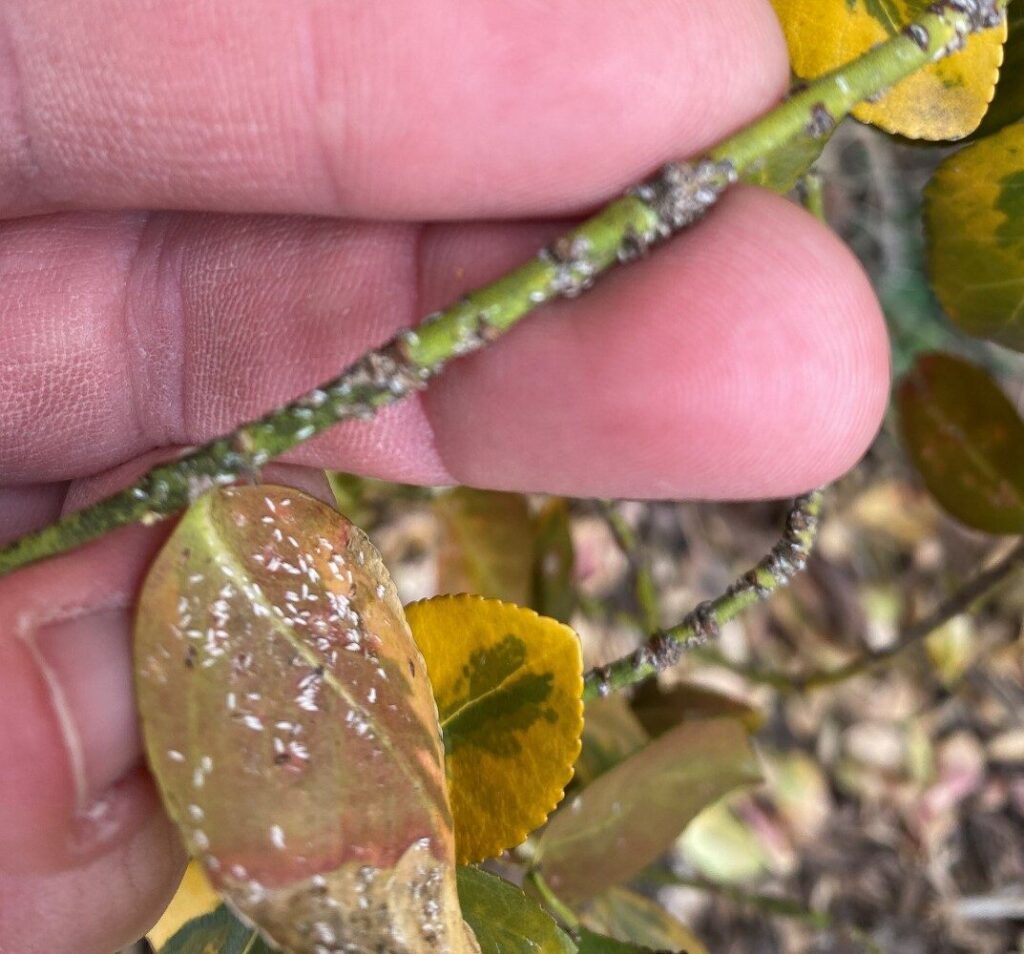Introduction
Euonymus scale and burning bush scale are two common pests that can wreak havoc on your landscape. These tiny insects may seem harmless at first glance, but their infestations can lead to significant damage to your evergreen shrubs and vines. In this blog post, we’ll delve into what these pests are, how to identify them, and effective control measures to protect your plants.
What is Euonymus scale?
This non-native scale insect attacks evergreen shrubs and vine forms of Euonymus. Euonymus scale can also attack privet, bittersweet, and pachysandra. Burning bush (Euonymus alatus) is technically not a host for the same scale insect despite being in the same genus of plants. However, burning bush is a host for a very similar scale insect called winged euonymus scale or burning bush scale. These tiny scale insects feed on plant sap from stems and branches, and occasionally also from leaves in severe infestations. Feeding can cause premature leaf-drop on infested plants, or cause defoliation and loss of vigor on evergreen varieties of Euonymus.
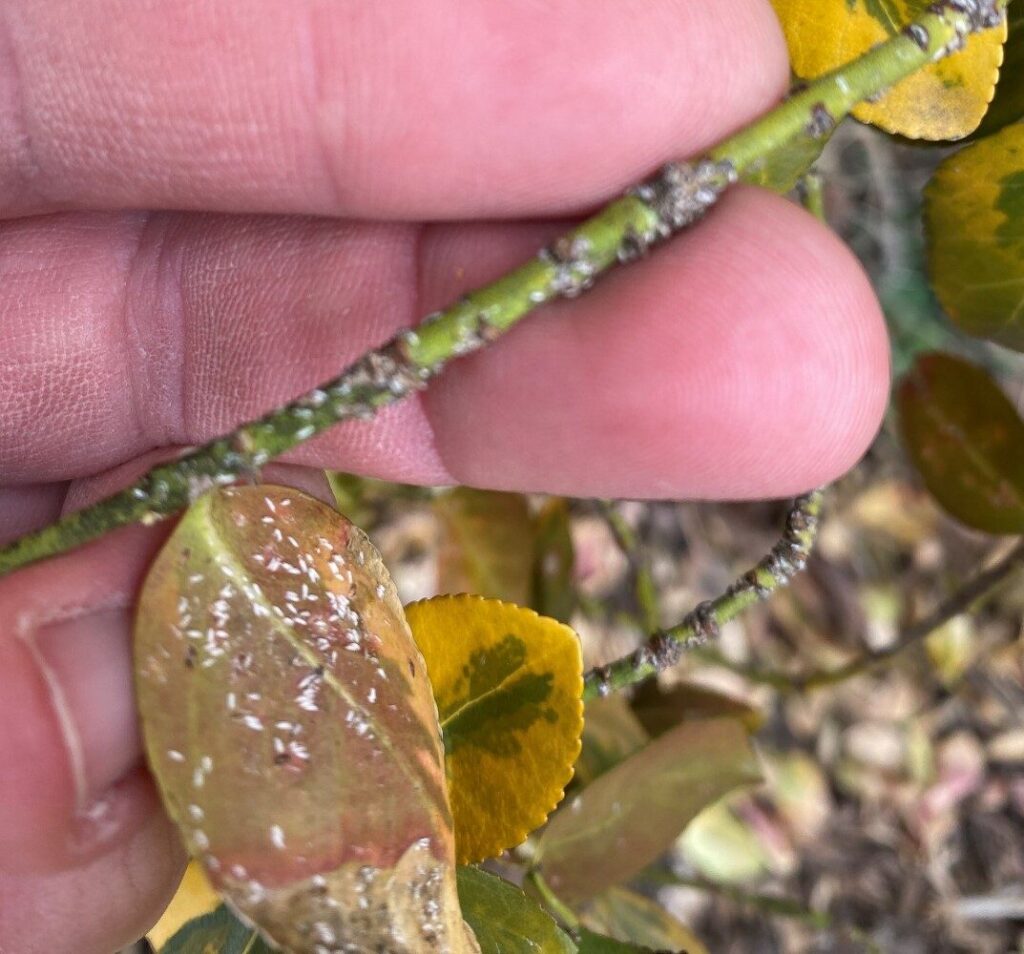
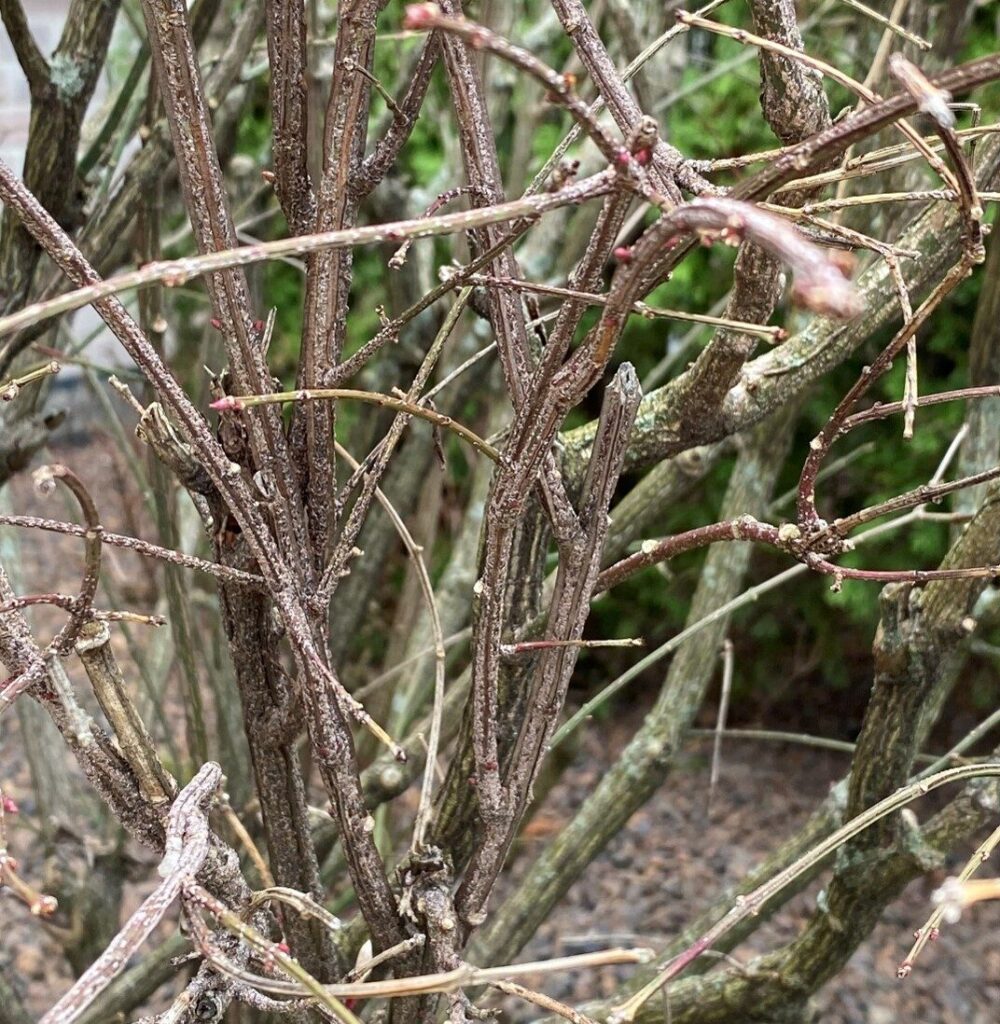
Symptoms to look for:
- Tiny white and tan spots on plant stems densely clustered
- Tiny yellow crawlers on evergreen euonymus or white flattened crawlers on burning bush
- Wilting or discolored leaves during the growing season
- Heavily infested branches may produce little or no leaves
- Premature defoliation on Burning Bush/Winged Euonymus
Life Cycle
Euonymus scale can produce 2 generations in our area.
First generation emerges in spring (typically April-June).
Second generation emerges in late summer (typically August-September).
The second generation will overwinter as adults, or adults may lay eggs that overwinter on infested plants.
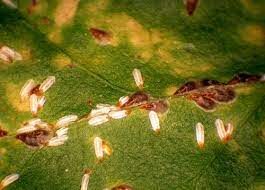
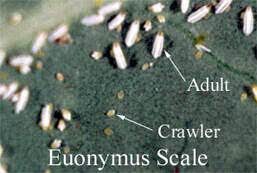
Control
In smaller infestations, pruning out infested branches may be an effective control. Keeping plants in good health will also generally improve resiliency to pest infestation.
Scale pests are most susceptible to control sprays during their “crawler” stage when the insects emerge and are mobile and before creating their waxy scale coating. Late spring to mid-summer is an appropriate time for contact insecticide control.
Dormant oil sprays can be effective on evergreen euonymus, since the adults may overwinter on the plant. Burning bush scale can overwinter as eggs or immature scales, and are less susceptible to dormant oil sprays.
Systemic insecticides are effective if applied with the correct timing. Imidacloprid is not effective because the molecule moves too slowly and is not soluble enough. Dinotefuron is suitable because of its higher water solubility and mobility.
Conclusion
If you suspect that your plants are affected by Euonymus scale or burning bush scale, don’t hesitate to reach out to Homer Tree Care‘s experienced arborists for assistance. Our team can provide expert guidance on identifying and controlling these pests, ensuring the health and vitality of your landscape. Protect your plants today and schedule a consultation with Homer Tree Care to keep your garden thriving for years to come.

